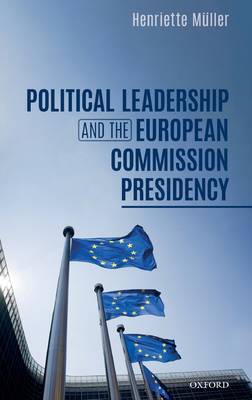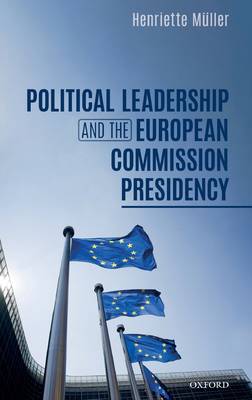
- Afhalen na 1 uur in een winkel met voorraad
- Gratis thuislevering in België vanaf € 30
- Ruim aanbod met 7 miljoen producten
- Afhalen na 1 uur in een winkel met voorraad
- Gratis thuislevering in België vanaf € 30
- Ruim aanbod met 7 miljoen producten
Zoeken
€ 201,45
+ 402 punten
Omschrijving
The EU's pluralistic, nonhierarchical system of multilevel governance lacks clear structures of both government and opposition. According to the EU treaties, the presidency of the European Commission is thus not explicitly expected to exercise political leadership. However, the position cannot effectively be exercised without any demonstration of such leadership due to its many leadership functions. Examining this curious mix of strong political demands, weak institutional powers, and need for political leadership, this book systematically analyses the political leadership performance of the presidents of the European Commission throughout the process of European integration. The basic argument is that Commission presidents matter not only in the process of European integration, but that their impact varies according to how the different incumbents deal with the institutional structure and the situational circumstances, and thus their available strategic choices. The primary research question is thus, What makes political leadership in European governance successful and to what extent (and why) do Commission presidents differ in their leadership performance? In addressing this question, this book departs from existing research on EU leadership, which has to date often analysed either the EU's institutional structure and its potential for leadership or mainly focused on only the most recent incumbents in case study analyses. Focusing on the multiterm European Commission presidents Walter Hallstein, Jacques Delors, and José Manuel Barroso, this book conceptualizes their political leadership as a performance, and thus systematically analyzes their agenda-setting, mediative-institutional, and public outreach performance over the entire course of their presidential terms.
Specificaties
Betrokkenen
- Auteur(s):
- Uitgeverij:
Inhoud
- Aantal bladzijden:
- 352
- Taal:
- Engels
Eigenschappen
- Productcode (EAN):
- 9780198842002
- Verschijningsdatum:
- 29/01/2020
- Uitvoering:
- Hardcover
- Formaat:
- Genaaid
- Afmetingen:
- 155 mm x 236 mm
- Gewicht:
- 657 g

Alleen bij Standaard Boekhandel
+ 402 punten op je klantenkaart van Standaard Boekhandel
Beoordelingen
We publiceren alleen reviews die voldoen aan de voorwaarden voor reviews. Bekijk onze voorwaarden voor reviews.








